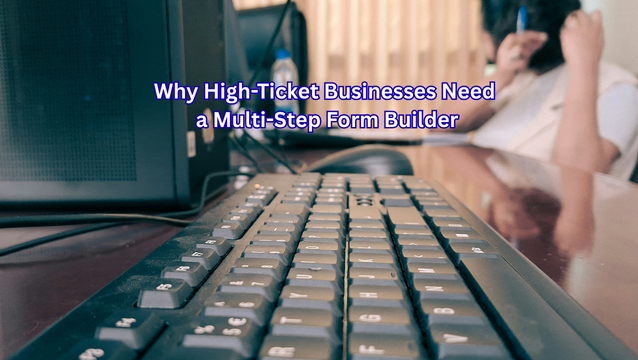Lead generation is often considered to be a thing of marketing, and for a very good reason. The problem is that if your website has major cybersecurity issues, a lot of people will learn about them long before they ever do business with you. Sure, some people just follow the link, but most don’t engage right away. Most don’t buy right away. So, if you have any major cybersecurity issues, this will come to light pretty soon and kill any attempts to generate leads. With that in mind, here are five ways better cybersecurity will result in better lead generation.
1. Compliance with regulations
From the start, you need to prove that you’re trustworthy, and you’re not just proving this to your customers but to the rest of the business world, as well. The fact that you’re downplaying the significance of B2B leads. B2C is not the only aspect you should focus on.
There are quite a few things you’ll have to honor in order to be GDPR and CCPA-compliant, but you really have no choice if you’re serious about making it in this industry. Most importantly, you have to protect your online presence every step of the way, from personal devices that are logging into your site all the way to the server behind your organization’s more important processes.
An antivirus can keep you safe from this, but you can’t just use any antivirus. According to technology writer Ilijia Miljkovac from Techopedia, picking the best server antivirus will require reading a lot of reviews and in-depth guides. We’re talking about picking enterprise-grade software to keep you safe from the majority of online threats. Keep in mind that these enterprise-grade antiviruses also come in plans that cost substantially more.
2. Preventing data breaches
A data breach is more than just an incident that you have to fix. It’s a problem that will leave a lasting impact on your reputation. Industry data shows 43% of cyberattacks target small businesses, yet many founders still believe they're too small to be on anyone's radar. A misconception that leaves lead pipelines exposed long before a breach is ever detected. Sure, major platforms like LinkedIn or Facebook can get away with it, but for a small business, it would spell doom.
This is one of the first things people will find when googling your business, and they’ll immediately assume that they cannot afford to trust you with their data. It doesn’t matter if this incident only happened once; to them, once is more than enough. While running a site or an online business, you’re collecting user data that you intend to use. What you’re planning to do with it is your own business, but this data's safety and integrity should always be paramount.
Also, in 2024, everyone is aware that sites collect data, so if you cannot be trusted with their data, there’s literally no point in them visiting your site. To make the long story short, as a small business, you have just one shot to make it right, and a single mistake will ruin your enterprise beyond repair. This is why cybersecurity is an issue that you have to think about long before you start pouring money into marketing.
3. Boosting website performance
There are a lot of performance-based issues that come from cybersecurity issues. One of the examples are so-called DDoS attacks (distributed denial-of-service), which is a malicious attempt to disrupt the regular traffic of a targeted server or a service of networks.
Every time someone enters your site, they send certain requests, and your server responds. However, your server can only handle so many requests at a time before it’s overloaded. Now, for the majority of businesses, this really shouldn’t be that much of an issue since a server can usually take more than its average audience. As their business (and audience) grows, the business can upscale their server capacities to meet these demands.
The problem happens when an unexpected traffic occurs. This happens when your business goes viral or when you are under a DDoS attack. This is a scenario where your competitor or a malicious third party sends a horde of bots to impersonate real visitors. Sure, if your site is slow or unresponsive a regular customer might come back at a later date. A first-time lead will not and you’ll lose them for good. This is why your cybersecurity needs an update, and it needs it fast.
4. Securing online transactions
A lot of people make a mock purchase when they first reach out to the site. They pick an inexpensive item and place an order. From here, they observe whether their data and their money are safe. They wait patiently to see if you’ll receive the funds and if they’ll receive the service.
The majority of customers will work their way up until they actually become meaningful leads or customers who are open and willing to spend a substantial amount of money at your site. Another thing you need to keep in mind is that most of these customers won’t stay silent. They’ll go out there and write reviews and comments. People doing research on whether you’ll legit will encounter these comments under the comment section on your social media profiles, subreddits, and more.
Overall, ensuring secure transactions is the only way for your enterprise to keep generating leads in the long run. Secure payment transactions are actually what matters the most. Even in this day and age, when so many young spenders worry about whether your methods are ethical, the majority of customers just want to hear about their dollar value. Before that, they want to know that they’re not getting scammed and that there is an actual value.
5. Protecting your intellectual property
All your marketing strategies, ranging from content marketing to the way your site works, are your intellectual property. By having it on display without any safeguards, your competitors will easily steal all your best ideas and exploit all your worst ones.
Sure, there are some things that no reputable legal business will do, but not all your competitors will have this sort of consideration. They can send too many bots your way in order to overload your servers. They could steal your trade secrets. At the same time, they could web scrape your site so that they can recreate it to the tiniest little details and then use it in a phishing effort in order to discredit your brand as a whole.
While all of this may seem too diabolical, the truth is that none of it is outside of the realm of possibilities. We didn’t come up with any of the examples from the last paragraph. These are the actual things that businesses have done in order to destroy or disrupt their competitors. One fallacy that a lot of businesses make is to assume that they’re not big enough to ever get into someone’s crosshairs to a degree where they might actually decide to do it to them. Nothing could be further from the truth.
The only right way to approach lead generation is holistically
If you don’t address your site’s performance and cybersecurity, no amount of marketing will ever yield positive results. This is why it’s so important that you approach these issues holistically, and instead of solving them one step at a time, you approach them as parts of a larger whole. Always focus on the end result.
Conclusion
By building confidence, preventing data breaches, improving website performance, securing online transactions, and safeguarding intellectual property, improving cybersecurity can greatly increase lead generation. Businesses may prevent reputational harm and establish credibility by making sure regulations are followed and consumer data is protected. It's imperative to handle these cybersecurity issues comprehensively for efficient marketing and ongoing lead development.








